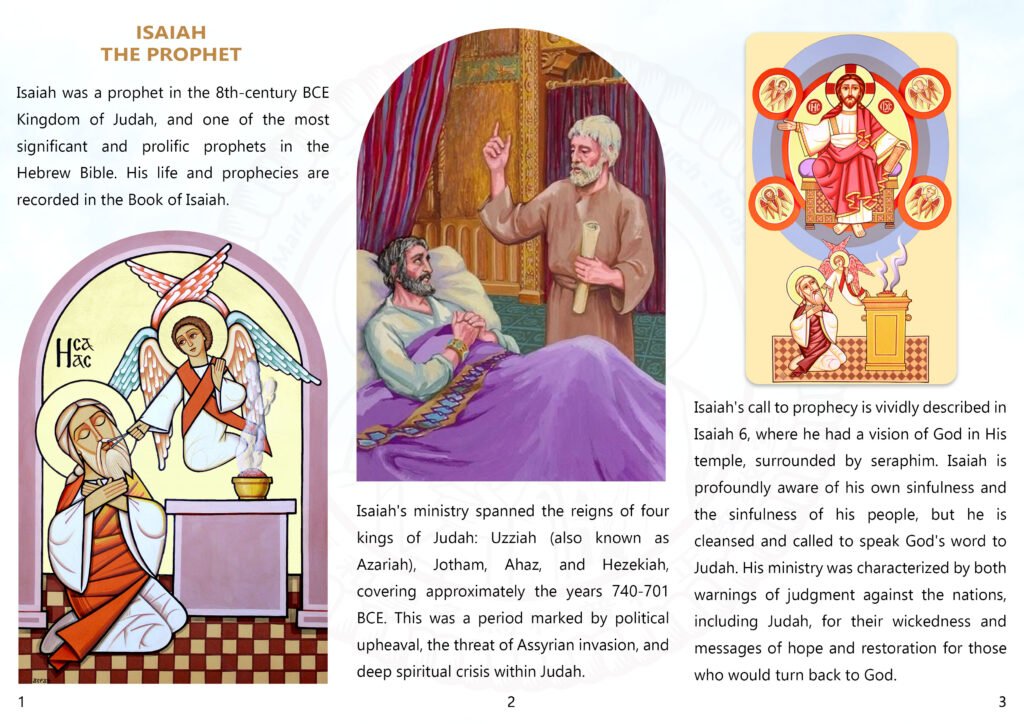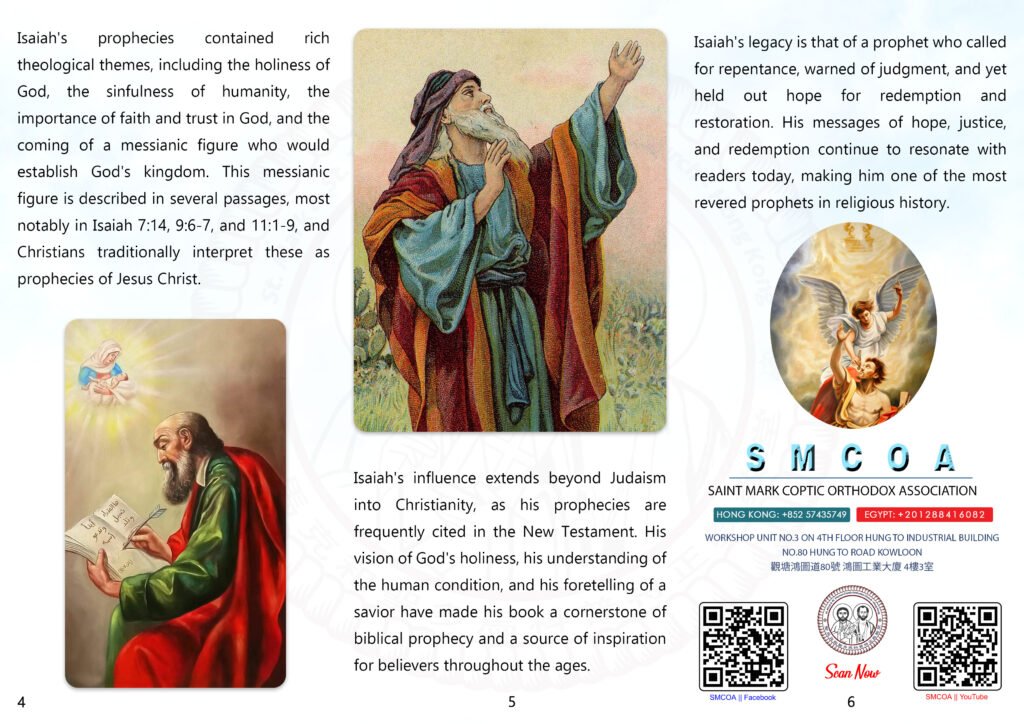Isaiah was a prophet in the 8th-century BCE Kingdom of Judah, and one of the most significant and prolific prophets in the Hebrew Bible. His life and prophecies are recorded in the Book of Isaiah.
Isaiah’s ministry spanned the reigns of four kings of Judah: Uzziah (also known as Azariah), Jotham, Ahaz, and Hezekiah, covering approximately the years 740-701 BCE. This was a period marked by political upheaval, the threat of Assyrian invasion, and deep spiritual crisis within Judah.
Isaiah’s call to prophecy is vividly described in Isaiah 6, where he had a vision of God in His temple, surrounded by seraphim. Isaiah is profoundly aware of his own sinfulness and the sinfulness of his people, but he is cleansed and called to speak God’s word to Judah. His ministry was characterized by both warnings of judgment against the nations, including Judah, for their wickedness and messages of hope and restoration for those who would turn back to God.
Isaiah’s prophecies contained rich theological themes, including the holiness of God, the sinfulness of humanity, the importance of faith and trust in God, and the coming of a messianic figure who would establish God’s kingdom. This messianic figure is described in several passages, most notably in Isaiah 7:14, 9:6-7, and 11:1-9, and Christians traditionally interpret these as prophecies of Jesus Christ.
Isaiah’s influence extends beyond Judaism into Christianity, as his prophecies are frequently cited in the New Testament. His vision of God’s holiness, his understanding of the human condition, and his foretelling of a savior have made his book a cornerstone of biblical prophecy and a source of inspiration for believers throughout the ages.
Isaiah’s legacy is that of a prophet who called for repentance, warned of judgment, and yet held out hope for redemption and restoration. His messages of hope, justice, and redemption continue to resonate with readers today, making him one of the most revered prophets in religious history.








